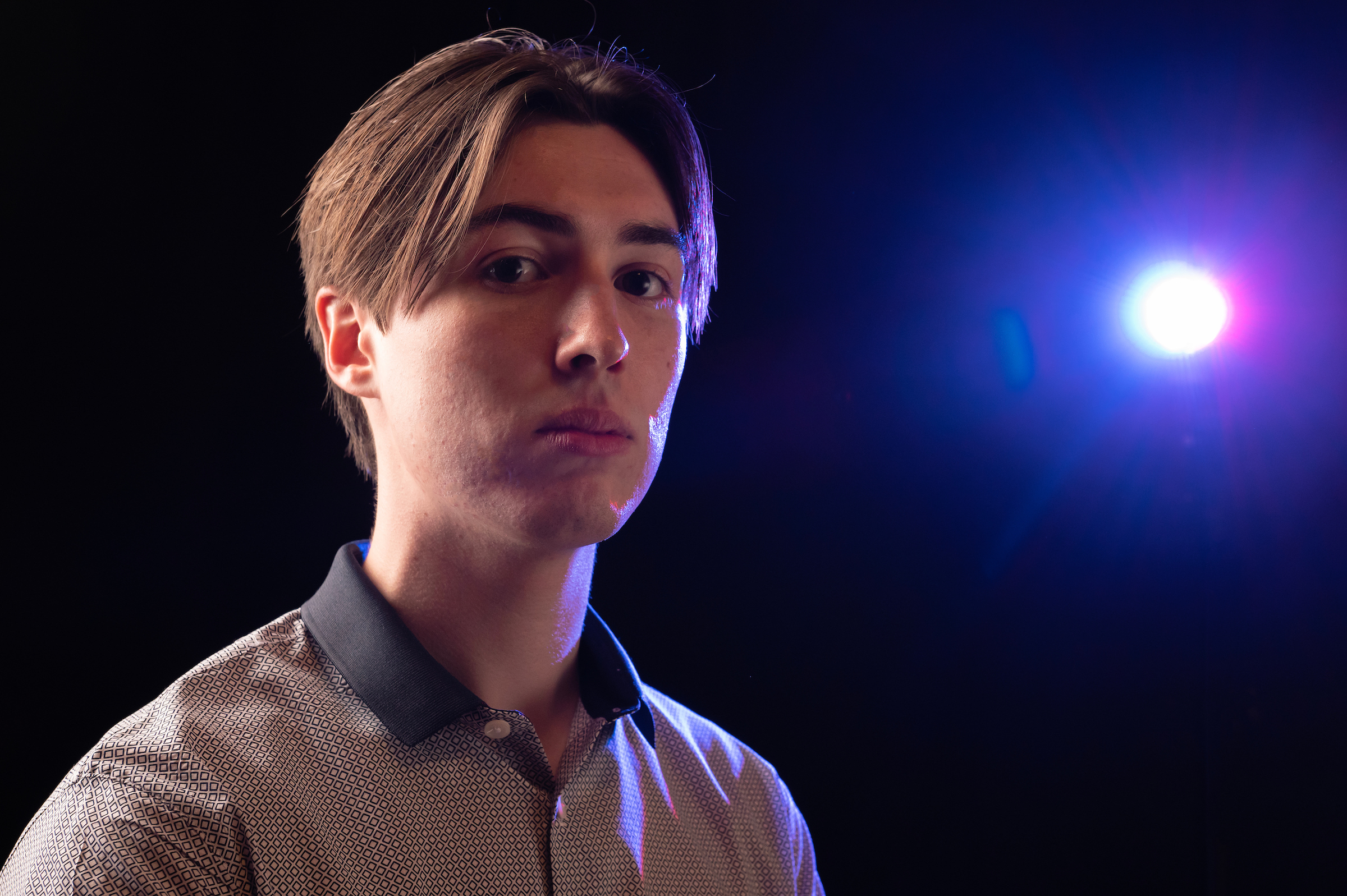Drawing from personal experience, Williams used the concept of linguistic framing to study the outcomes people expect when interacting with police in traffic stops.
Let’s just say that Nicholas Williams ’23 was perplexed.
As a teenager, he was pulled over in a couple of traffic stops that resulted in speeding tickets. But his friends? When several of them were stopped, they were let go with verbal or written warnings. He wondered: Was it just his bad luck, or was there something he could have said — or a way in which he could have said it — to persuade officers to show him the same leniency? What would most people assume those magic words might be?
As an Elon College Fellow and psychology major, he applied himself to finding out.
Over the last two years, Williams has studied linguistic framing in traffic stops. Under the mentorship of Professor of Psychology Kim Epting, his undergraduate research involved surveying 500 people about the word choices they might make when stopped by police and how they think officers would react. Last week, he presented his research at the National Conference on Undergraduate Research, one of 40 Elon undergraduates who presented at the annual conference.
“There has been a lot of research around traffic stops as they relate to things like race, gender and other demographics, but I couldn’t find anything around language drivers use during traffic stops,” Williams said. “I just thought it was really interesting that just the words you choose could potentially get someone out of a situation like that.”
One type of linguistic framing is goal framing, as a person might use certain language to achieve a certain goal — positive framing — or avoid another outcome — negative framing. In the study, a positive result was being let go with a warning and a negative result was getting a ticket.
For the study, using language like, “Could you let me off with a warning?” was positive goal framing. Negative goal framing used language like, “Please don’t give me a ticket.” The study also included various levels of respectful or disrespectful language, such as calling an officer “dude,” which were gleaned from previous studies involving police officers.
Unsurprisingly, study participants indicated that using respectful language would lead to a better outcome. What was surprising, however, was that participants also assumed that openly trying to avoid a negative outcome — directly asking an officer to let them go without a ticket — would make police more likely to penalize a driver.
“Language is such a nuanced thing that we weren’t sure if people were going to perceive an effect of certain words over others, so seeing that they did was interesting and a little surprising,” Williams said.
Epting’s research expertise is in linguistic framing. She finds the ways people use and interpret language both meaningful and endlessly fascinating.
“These tiny word choices can change our perceptions of things: how we spend money, how we vote, or whether or not we think we’ll get a ticket. We can say, ‘It’s just semantics,’ but how you choose to say something changes how people perceive you or react,” Epting said.
Williams and Epting connected during his sophomore year and they forged a bond of mutual respect and trust during their time together.
“She is a really, really great mentor,” Williams said. “Her level of guidance without it being hand-holding or spoon-fed has prepared me for future research. She lets me work independently and then we review that work together. She respects me and there’s give and take.”
“Nick is so dedicated and invested in everything he does, and he really impressed me with his ability to immerse himself in his work,” said Epting, director of the Elon College Fellows program. “He has so many interesting ideas and finds value in all his experiences. The Elon College Fellows values are curiosity, passion and responsibility, and Nick is a great example of those values.”
Apart from research, Williams also completed a summer internship with New York University’s Department of Neuroscience and Physiology to study brain activity and listening effort. After graduation, he plans to pursue a career in technology and earn a master’s degree in computer science.



